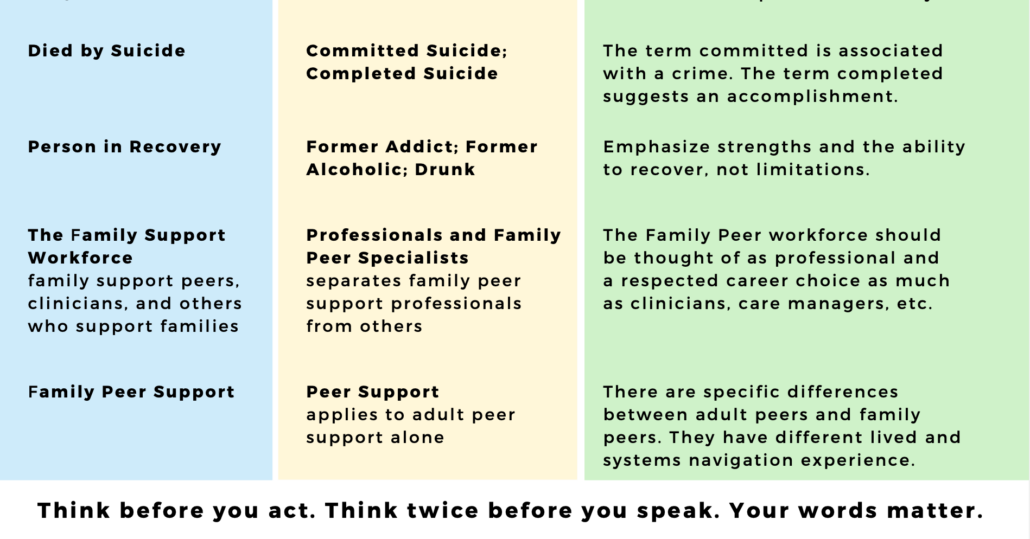Refraining language in mental health is a very powerful mechanism that can foster better understanding, empathy, and empowerment. By consciously sifting our words, and changing our perspectives, we can transform the way we communicate about mental health, with ourselves and with others. Reframing involves replacing stigmatizing or negative language with neutral or positive alternatives that emphasize, resilience, growth and recovery. The reason this matters is because language has a profound impact on us, it shapes our thoughts, actions, and perceptions. By implementing more use of reframing language, we can reduce the stigma around mental health, challenge harmful stereotypes, encourage self compassion, and create a healthy and supportive environment where individuals feel validated, heard, and encouraged to seek help. This enables us to view mental health challenges as part of the human experience and to focus on strengths, resilience, and the potential for personal growth and healing.
“Mental illness is nothing to be ashamed of. It is a medical problem, just like heart disease or diabetes. Mental illnesses are health conditions involving changes in emotion, thinking or behavior (or a combination of these). Mental illnesses are associated with distress and/or problems functioning in social, work or family activities – and they are often accompanied by substance use. It’s critical that we talk about these challenges and that we do so in the right way.”
~National Federation of Families

Photo: National Federation of Families
Here are some examples of reframing language:
- A person living with a mental health condition ( Hindering Language- The mentally ill, psycho, crazy, lunatic)
- A person with substance use challenged (Hindering Language- Addict; Meth head; tweaker; junkie)
- My son diagnosed with Bipolar disorder (Hindering Language- My son is bipolar)
- My daughter with Schizophrenia ( Hindering Language- My Schizo daughter)
- The client I’m treating for depression ( Hindering Language- My depressed client)
- My father who has alcoholism ( Hindering Language- My alcoholic father)
Our words can have major consequences on the listener, so it is important to think twice before we speak and act.
Reference:https://www.ffcmh.org/_files/ugd/49bf42_45b869cebad448d6a6ba48385639d427.pdf?index=true




